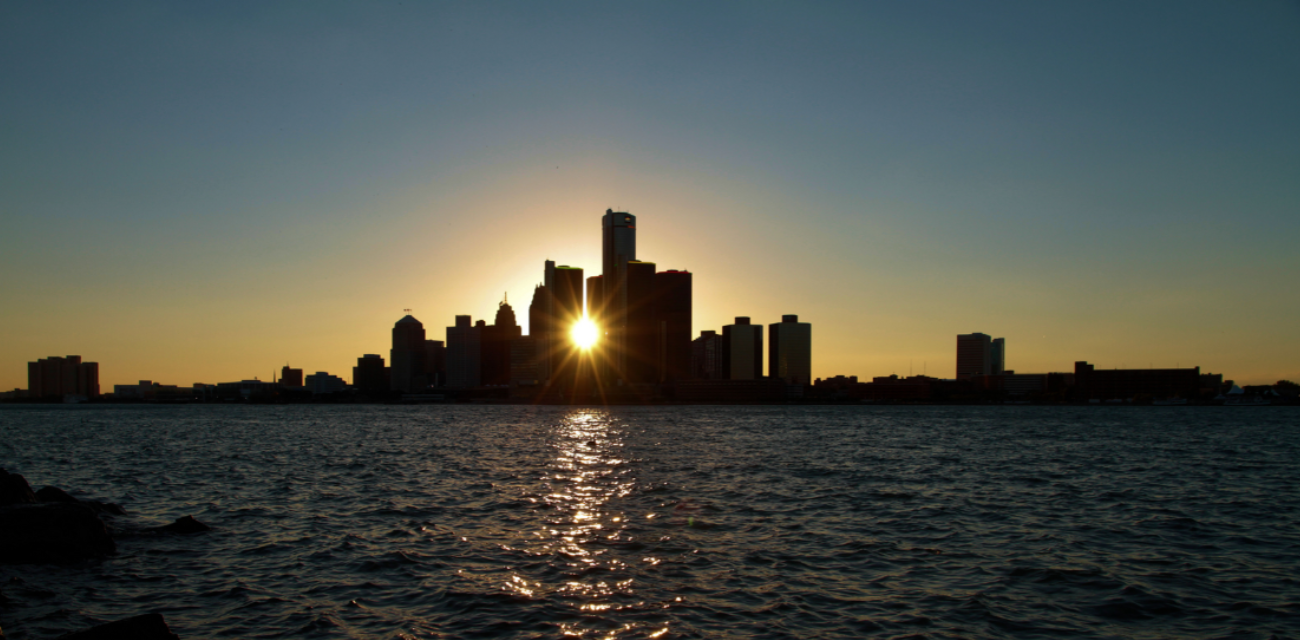Celebrating Black environmental advocates, then and now

Authored by

Grace Noyola
As we celebrate Black History Month this February, the contributions and leadership of Black activists in Michigan’s environmental movement cannot be understated. Communities of color have disproportionately experienced the worst impacts of fossil fuel pollution, environmental contamination, and climate change.
Black activists across the country and the world have been on the front lines of the environmental movement for decades, and we wouldn’t be where we are now without them. One such activist, Dr. Bunyan Bryant, is often known as a pioneer of the environmental justice movement here in Michigan and was the 2008 recipient of the Environmental Council’s Helen and William Milliken Distinguished Service Award.

In 1990, Dr. Bryant, alongside fellow University of Michigan faculty member Paul Mohai organized a revolutionary
conference titled ‘Race and Incidence of Environmental Hazards’ at the university’s School of Natural Resources, which drew social justice and environmental advocates from across the country. The conference played a huge part in the recognition of environmental justice as an academic discipline, and also resulted in the formation of a coalition of environmental justice advocates and academics that came to be known as the Michigan Group.
Together, this group took their activism nationwide, and eventually secured several meetings with the head of the Environmental Protection Agency at the time, which resulted in the creation of the EPA’s Workgroup on Environmental Equity.
Dr. Bryant’s advocacy also indirectly led to the 1994 Executive Order ‘Federal Actions to Address Environmental Justice in Minority Populations and Low-Income Populations’, signed by former President Bill Clinton. Throughout the course of his illustrious 40-year career, he received countless awards, served on boards and national councils, and mentored countless young environmental justice advocates. It’s a legacy that will be felt for generations.
Despite the tireless work of advocates like Dr. Bryant, environmental injustice is felt far and wide to this day. Black and “fenceline” communities are often targeted with siting of heavy industrial facilities, transfer stations, and other environmental nuisances, because residents often lack the resources to fight those decisions, resulting in harmful health impacts that hurt already at-risk communities.
Galen Hardy is the Detroit program director for the Environmental Council, and weighed in on how we continue to see environmental injustice across Michigan.
“Detroit leads the state of Michigan in asthma rates. Lead and other pollutants continue to contaminate our homes, schools, and water supplies—at disproportionately high rates in BIPOC communities. All individuals deserve access to clean air, water, and homes that don’t make them sick. It’s our responsibility to work towards policy solutions that protect our people and ensure equity is at the center of decision-making.”
Today, Michigan is home to many advocates who carry on the work of Dr. Bryant and other pioneering environmental justice leaders, including these Environmental Council member organizations:
Southwest Detroit Environmental Vision is a coalition of residents, community organizations, local & government agencies, schools, business, and industry working together to combat environmental issues, including air quality, blight (illegal dumping, graffiti, abandoned homes), and incompatible land use.
Detroiters Working for Environmental Justice advocates for and gives people of color and low-income residents in Detroit and beyond, the tools they needed to educate, advocate, and organize for cleaner, healthier communities and environments. They help ensure that environmental justice is a priority while addressing the inequitable environmental burdens faced by many Detroit residents.
CLEARCorps Detroit uses a person-centered and home-focused approach to reduce the health risks of lead poisoning and other environmental hazards in homes by working with families to repair or replace hazardous home materials, get kids tested and treated for lead exposure, advocating for policy change, and educating parents about key health risks.
Discover
Power environmental change today.
Your gift to the Michigan Environmental Council is a powerful investment in the air we breathe, our water and the places we love.
Sign up for environmental news & stories.
"*" indicates required fields




